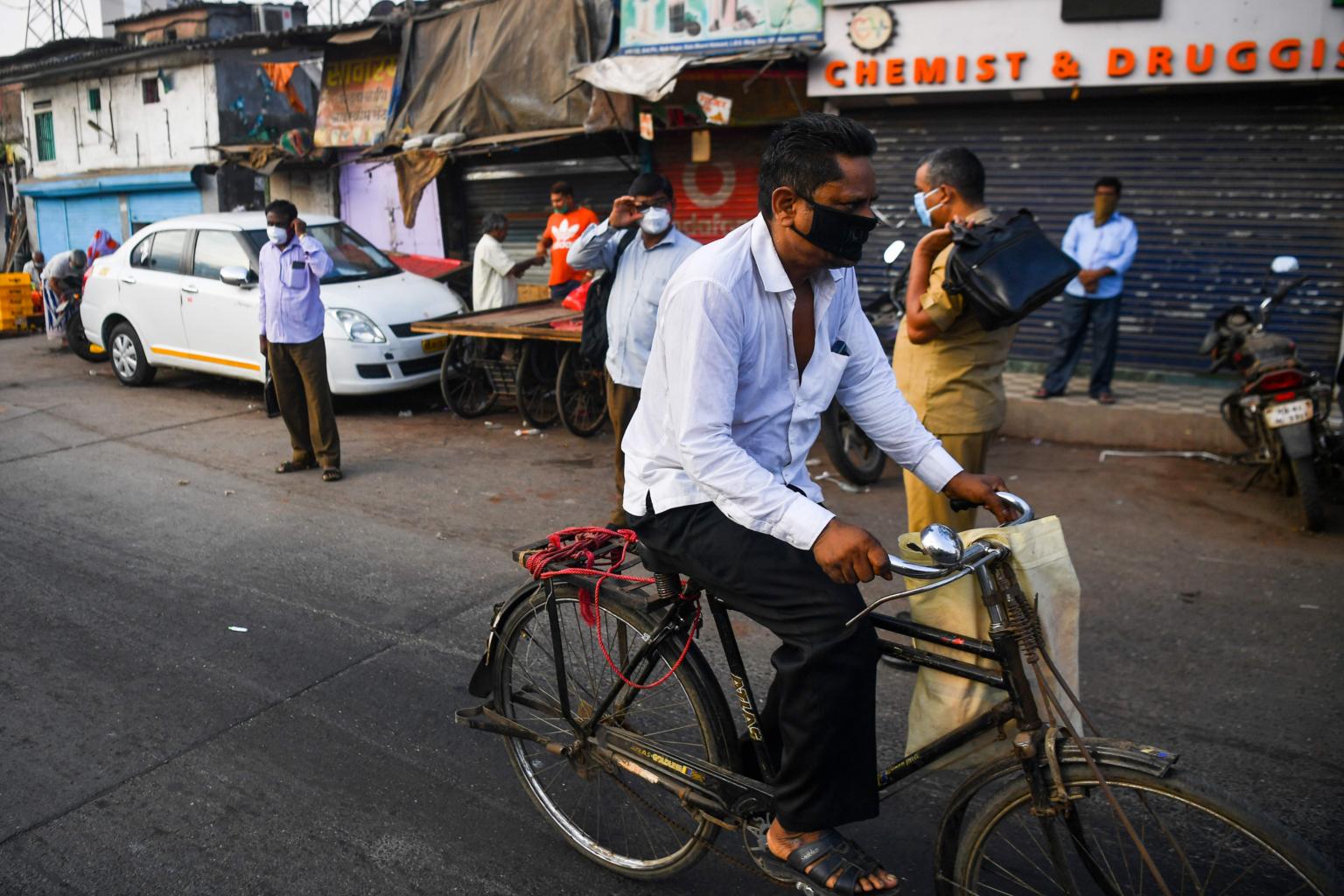India to 'reimagine' streets for walkers, cyclists after coronavirus
Sign up now: Get insights on Asia's fast-moving developments

An advisory issued recommended the pedestrianisation of up to three markets in each city, and adding more bicycle lanes.
PHOTO: AFP
BANGKOK (THOMSON REUTERS FOUNDATION) - India has unveiled plans to take advantage of the Covid-19 lockdown to pedestrianise its streets and markets.
An advisory issued by the Ministry of Housing and Urban Affairs recommended the pedestrianisation of up to three markets in each city, and adding more bicycle lanes. City authorities must select the markets by June 30, and begin implementing short-term measures from Oct 1, it said.
"Covid-19 presents us with an opportunity to reimagine streets for people," Mr Durga Shanker Mishra, the ministry's secretary, said in a statement last week. "As cities look to ease the lockdown and provide safe, affordable and equitable modes of transport, the need for pedestrianisation of market spaces through walking- and cycling-friendly cities is of utmost importance."
While cities worldwide ease lockdown restrictions, some are closing roads to vehicles, adding bicycle lanes, widening pavements and handing over parking spaces to cafes. The mayor of Bristol for example, has set out plans to turn part of the city's historic centre into a pedestrian-only zone. Milan is also expanding its pavements and repurposing some roads to favour pedestrians and cyclists, The Guardian newspaper reported.
In India, the authorities should consult with vendors and residents on immediate measures such as barricades, road closures and repurposing of parking spaces, the urban affairs ministry said. The authorities in India - home to more than half the 10 most polluted cities in the World Air Quality Report index - can also use unclaimed and under-utilised public spaces to increase walkability, it added.
The pedestrianisation of streets and market places is "not only feasible, but the only viable option", and key to restoring safety, vibrancy and liveability in communities, said Ms Jaya Dhindaw, director of urban planning at research firm WRI India.
"For the longest time, pedestrian and cycling infrastructure has been the lowest priority despite the fact that non-motorised transport is affordable, people-friendly and offers huge social, economic and environmental benefits," she said on Wednesday (June 17). "What seems like a necessary step to aid movement during the health crisis definitely has the potential to re-wire cities'mobility trends," she told the Thomson Reuters Foundation.
Under India's Smart Cities programme that aims to make 100 urban centres more liveable and sustainable, some cities had already been promoting public transit and bicycle lanes. The southern Indian city of Chennai has carved out more than 100km of pedestrian-friendly streets, the urban affairs ministry noted.
Chennai's efforts paid off during the lockdown, said Mr Raj Cherubal, chief executive of Chennai Smart City Ltd. "We should use the coronavirus as an excuse to rejig our streets and our approach to public transit," he said. "India doesn't have a choice but to do this to limit emissions, and curb congestion and pollution."
With India grappling with an economic downturn caused by the pandemic, the authorities facing shrinking budgets will need to be innovative in their mobility plans, Ms Dhindaw noted. "Small-ticket items like non-motorised transport infrastructure expansion and improvements that got left out in the scramble for metro and light-rail will now see renewed interest," she said. "In the long term, it will lead to more equitable and inclusive cities."


